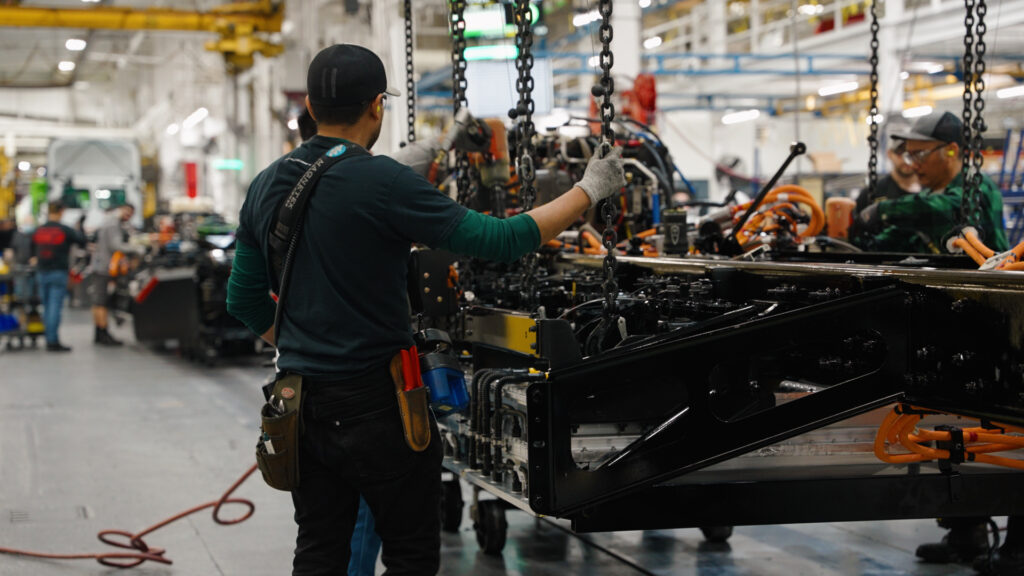DTNA outlines plans for expired battery packs
Daimler Truck North America (DTNA) revealed at ACT Expo its plans to find secondary lives for the battery packs that power its electric trucks.
The strategy involves repairing, remanufacturing, repurposing and ultimately recycling the materials in its lithium-ion batteries.

“As part of our commitment to maximizing material life cycles, we meticulously assess environmental and ethical implications from sourcing to post-production,” said Rakesh Aneja, vice-president and chief of Zero-Emission Transformation Group at DTNA. “Our primary goal is to repair our lithium-ion battery materials and reduce the consumption of new resources.”
When a battery is beyond repair, it will be remanufactured at Detroit Diesel Remanufacturing locations in the U.S., including the recently expanded Hibbing, Minn., location. Then those battery packs will be put back into service in DTNA vehicles.
Beyond that, the batteries will be repurposed through a partnership with Nuvation Energy. They’ll be used for backup storage, charging, peak shaving and microgrid scenarios.
DTNA also partnered with Li-Cycle to recycle batteries that can’t be repurposed. The company uses an environmentally friendly method to recover up to 95% of the materials within the battery, while producing minimal water discharge.
“This circular approach extends beyond just batteries,” said Aneja. “We are actively working to apply this concept to other facets of our product development, aiming to increase our utilization of reusable or recyclable materials. Our goal is to continue contributing positively to the preservation of our planet for future generations.”
Have your say
This is a moderated forum. Comments will no longer be published unless they are accompanied by a first and last name and a verifiable email address. (Today's Trucking will not publish or share the email address.) Profane language and content deemed to be libelous, racist, or threatening in nature will not be published under any circumstances.